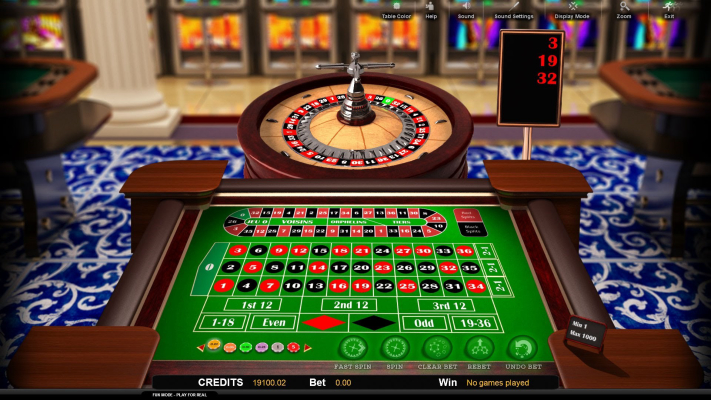In today’s digital age, gambling enthusiasts are increasingly turning to online platforms for their gaming needs. This article delves into the world of gambling online sites, offering an objective and analytical perspective on the advantages they offer.
From top-rated sites for beginners to tips and strategies for success https://www.jdl77.com/sg/en-us/product/sports, we explore the variety of games available and how to choose the right platform for you.
Stay informed and empowered as you navigate the exciting realm of online gambling.

The Advantages of Gambling Online Sites
One of the key benefits of gambling online sites is the convenience they offer to players. Online gambling platforms provide players with the ability to access a wide range of casino games from the comfort of their own homes, at any time of the day or night. This convenience eliminates the need for players to travel to physical casinos sport betting singapore, saving them time and money. Additionally, online gambling sites often offer mobile applications, allowing players to enjoy their favorite games on the go, further enhancing the convenience factor.
The advantages of online gambling extend beyond just convenience. Online platforms typically offer a wider variety of games compared to traditional casinos, giving players more options to choose from. These platforms also provide players with the opportunity to play for free, allowing them to practice and improve their skills without risking any money. This accessibility and variety contribute to the popularity of online gambling sites, attracting a larger audience and boosting the industry’s revenue.
However, it is important to consider the impact of online gambling on society. While online gambling sites offer numerous benefits, they also pose risks, particularly for vulnerable individuals. The ease of access to gambling platforms can lead to increased addiction rates, as people are more likely to engage in excessive gambling behavior. Additionally, the lack of physical interaction and socialization in online gambling can contribute to feelings of isolation and loneliness.
Top 5 Gambling Online Sites for Beginners
When it comes to beginners looking to explore the world of online gambling, there are a few standout platforms that offer a user-friendly experience and a wide range of games. These platforms not only provide a safe and secure environment for gambling, but also offer various winning strategies, bonuses, and promotions to enhance the overall gaming experience.
One of the top gambling online sites for beginners is Betway. With its sleek design and intuitive interface, Betway offers a seamless gaming experience. The site also provides useful tips and winning strategies to help beginners improve their chances of winning.
Another popular platform is 888casino, which offers a wide selection of games including slots, table games, and live dealer options. 888casino also offers generous bonuses and promotions, such as welcome bonuses, free spins, and cashback offers, to give beginners a head start in their gambling journey.
For those looking for a more immersive experience, LeoVegas is an excellent choice. Known for its mobile gaming capabilities, LeoVegas offers a user-friendly mobile app that allows beginners to play their favorite games on the go. The site also offers attractive bonuses and promotions, making it a great option for beginners looking to maximize their winnings.
Overall, these top gambling online sites prioritize user experience and offer a range of winning strategies, bonuses, and promotions to cater to beginners. With their user-friendly interfaces and enticing offers, these platforms provide an excellent entry point for beginners looking to explore the world of online gambling.
How to Choose the Right Gambling Online Site for You
Choosing the right platform for your online gaming needs requires considering factors such as user experience, game selection, bonuses, and promotions, among others. However, two crucial aspects that should not be overlooked are evaluating the reputation of gambling online sites and comparing the payment and withdrawal options they offer.
When evaluating the reputation of a gambling online site, it is essential to consider factors such as licensing, regulatory compliance, and the site’s history in the industry. Look for sites that are licensed by reputable authorities and have a track record of providing fair and secure gaming experiences to their users. Online forums and review sites can also be valuable resources in determining the reputation of a site.
Comparing the payment and withdrawal options of different gambling online sites is equally important. Look for sites that offer a wide range of payment methods, including credit/debit cards, e-wallets, and bank transfers. Additionally, consider the processing times for both deposits and withdrawals, as well as any associated fees. A good gambling online site should offer convenient and secure payment options that suit your preferences.
Exploring the Variety of Games on Gambling Online Sites
Online gaming platforms provide a diverse range of games to cater to the preferences and interests of different users. One of the most popular types of games on gambling online sites are casino games. These games offer a thrilling and immersive experience, allowing players to try their luck and potentially win big.
Some of the most popular casino games found on gambling online sites include slot machines, blackjack, roulette, poker, and baccarat. These games have been enjoyed by gamblers for decades, and their popularity continues to grow in the online space. The convenience and accessibility of online gambling platforms have made it easier for users to enjoy these games from the comfort of their own homes.
Technology has had a significant impact on gambling online sites. It has revolutionized the way these platforms operate and the gaming experience they provide. Advanced graphics and sound effects have enhanced the realism of online casino games, making them more engaging and immersive. Additionally, the use of random number generators (RNGs) ensures fairness in the outcome of the games, providing players with a sense of trust and confidence.
Tips and Strategies for Success on Gambling Online Sites
Tips and strategies can greatly contribute to the success of individuals on gaming platforms, by helping them make informed decisions and maximize their chances of winning. When it comes to online gambling sites, two key areas where players can employ effective strategies are bankroll management and maximizing bonuses and promotions.
Bankroll management strategies are crucial for long-term success in online gambling. Players should set a budget for their gambling activities and stick to it strictly. It is important to only gamble with money that one can afford to lose. Additionally, dividing the bankroll into smaller portions for each gaming session can help control losses and prevent impulsive decisions.
Maximizing bonuses and promotions is another smart strategy for online gamblers. Many gambling sites offer various bonuses and promotions to attract new players and retain existing ones. Players should carefully read the terms and conditions of these offers and choose the ones that provide the most value. It is important to consider factors such as wagering requirements, time limits, and game restrictions when selecting bonuses.
Conclusion
In conclusion, gambling online sites offer numerous advantages such as convenience, a wide variety of games, and the potential for success with the right strategies.
It is important for beginners to choose the right site that suits their needs and provides a user-friendly experience.
By exploring the different gambling online sites and utilizing tips and strategies, individuals can enhance their chances of success in the online gambling world.
…




 Unlike traditional casinos, online casinos allow players to place bets from anywhere in the world, with no time limits and no waiting. In fact, it takes only a few minutes to register and start playing for real money. Moreover, many of these sites offer bonuses to new players as an incentive to sign up and start playing for real money. This way, you can try out the site before you make a deposit.
Unlike traditional casinos, online casinos allow players to place bets from anywhere in the world, with no time limits and no waiting. In fact, it takes only a few minutes to register and start playing for real money. Moreover, many of these sites offer bonuses to new players as an incentive to sign up and start playing for real money. This way, you can try out the site before you make a deposit.














